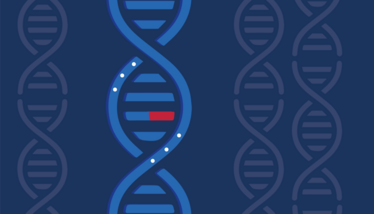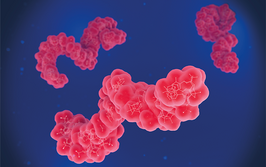
Mutation Detective
A new tool could predict whether cancer patients will benefit from immunotherapy
Nonsense mutations in the DNA disrupt protein synthesis and can lead to hereditary diseases and cancer. The human immune system generally recognizes and remove these nonsense mutations in a process called nonsense-mediated mRNA decay (NMD) – but new research shows that NMD can actually result in greater disease severity, especially in cancer patients, where NMD may prevent tumor cells from being exposed to the immune system (1).
Using a machine learning approach, one research team created a tool called NMDetective that describes every possible nonsense mutation – and then used it to analyze thousands of genetic variants leading to hereditary diseases. “We think that pharmacological NMD inhibition could potentially treat the symptoms of various genetic diseases,” explains Fran Supek, senior author of the research. By analyzing a tumor’s mutations, the NMDetective algorithm can provide insight into how a patient is likely to respond to immunotherapy, enabling more personalized treatment.

- R Lindeboom et al., “The impact of nonsense-mediated mRNA decay on genetic disease, gene editing and cancer immunotherapy”, Nat Genet, 51, 1645 (2019). PMID: 31659324.
While completing my undergraduate degree in Biology, I soon discovered that my passion and strength was for writing about science rather than working in the lab. My master’s degree in Science Communication allowed me to develop my science writing skills and I was lucky enough to come to Texere Publishing straight from University. Here I am given the opportunity to write about cutting edge research and engage with leading scientists, while also being part of a fantastic team!




















